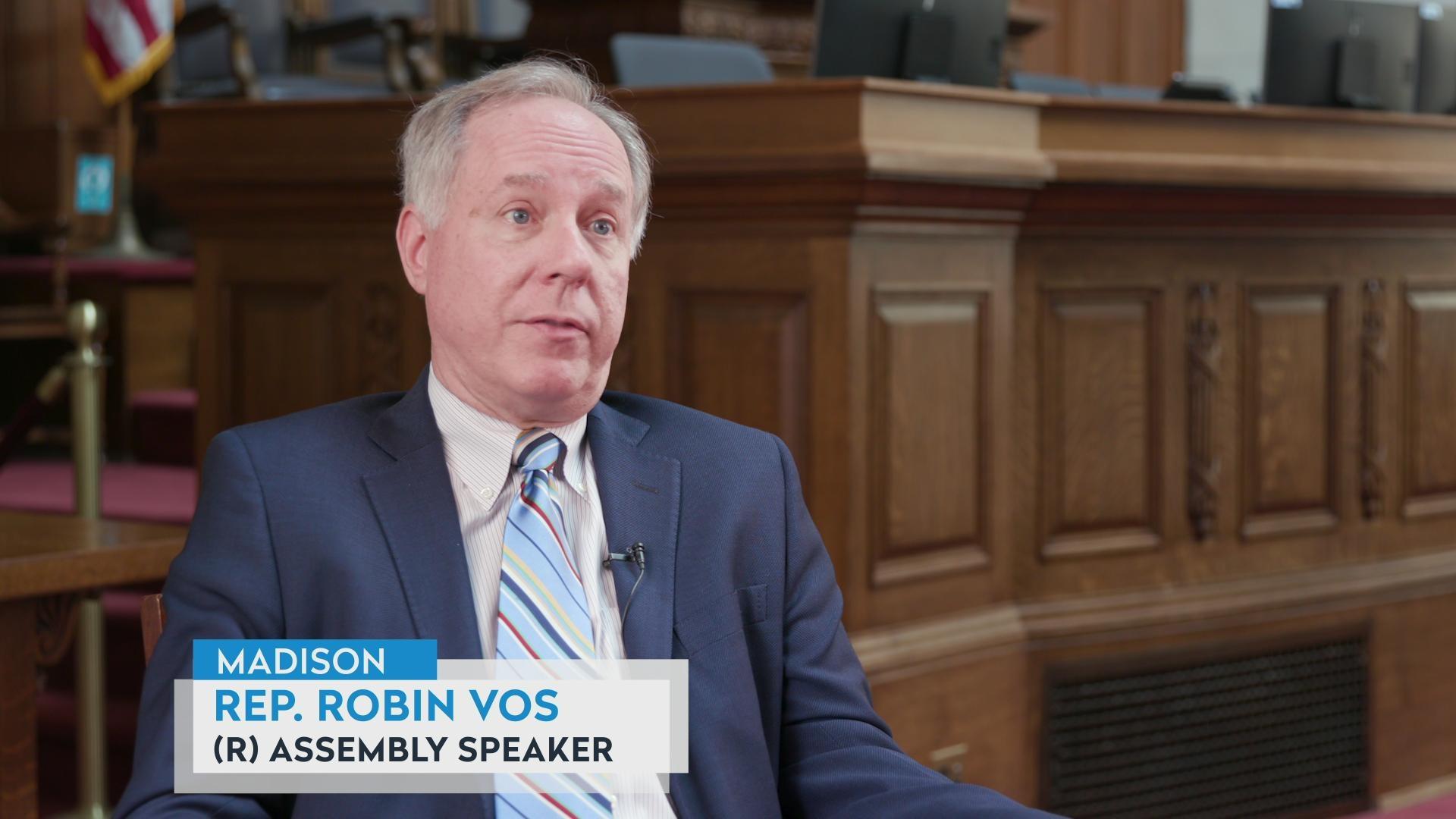Frederica Freyberg:
A man who has made bridging gaps and bringing communities together his life’s work describes the protests and riots as the voices of those who are fed up around the country. Who are marginalized on their jobs, priced out of their neighborhoods, overcharged for payday loans and over-policed. Michael Johnson, president and CEO of the Boys & Girls Club of Dane County joins us now. Thank you for being here.
Michael Johnson:
Thank you for having me on.
Frederica Freyberg:
So you called what happened to George Floyd a modern day lynching. Describe how this feels for you and the communities you serve?
Michael Johnson:
You know, when I saw it, I was at a grocery store with my wife, and me and my wife met at the University of Minnesota. We went to school at the University of Minnesota. I played football at the University of Minnesota. Had a family that lived in the southern part of Minneapolis. So when I was — when I saw it, I immediately broke down in tears. I was devastated by what I saw. I watched my wife come home and watch it on CNN and watched her break down in tears. And so what we saw was devastating, it was heartbreaking. And to know that we live in 2020 and that these kinds of things continue to happen to people who look like me is just not acceptable.
Frederica Freyberg:
There’s been a lot of talk on this program and others about the use of force protocol for police officers. But in your mind is what happened in Minneapolis the symptom of something much deeper?
Michael Johnson:
Yeah. I think we do have systematic racism in our country that we have to not only address. We talk a lot about racial disparities, we talk about systematic racism. But what we don’t do as a country is make the appropriate investment to address systematic racism. You can only address systematic racism as if you make it a financial priority. A lot of times if you look at local municipalities, they talk about it. When you look at their municipal budget, it just doesn’t align with the plans.
Frederica Freyberg:
So what kinds of funds should they be putting toward things in municipal budgets?
Michael Johnson:
You look at, you know, Wisconsin. I love this state. I’ve lived here for ten years. But we’ve been talking about racial disparities for 50 years. And the fact that we have African-American kids and other kids of color not graduating at the same rates of their white counterparts is a symptom of the lack of investment that we’ve placed in our schools. So that’s an issue within itself. When you look at health disparities and the lack of resources for African-American families and other families of color, it’s fundamentally — the kind of financial support that’s needed is not there, and a lot of times agencies that are led by people who look like me don’t necessarily get the financial support to be able to do this work at all different levels across the spectrum.
Frederica Freyberg:
And so would you describe that as systematic, institutionalized racism?
Michael Johnson:
I would say when you look at — just go look at the boards of directors of our large companies here. Look at the C suites of people who are in the CEO, COO and CFO seats. Look at the managers of most of the organizations that run the corporations in our state. Look at our nonprofit leaders. When you don’t have diversity and inclusion, that’s a form of systematic racism. When you look at the inadequate funding opportunities to address these issues, that’s a form of systematic racism. And so those are the challenges that we see, you know, not only in Wisconsin, but across the country that we have to begin to address. Or what will happen is we’ll be talking about these issues 15, 20 years from now because we have not made the appropriate investments. We have not come up with the appropriate vision and the priorities to support, eradicate these issues that address our community.
Frederica Freyberg:
Protests and rallies have happened across the country and here at home, as you know. Some have turned violent. Some organizers are unapologetic about that. Whereas you call for peaceful protests, and you’re even readying to hire like 75 peacekeepers. What will they do?
Michael Johnson:
Yeah. So one of the things I’m concerned about, immediately when I saw the protest that happened in Madison, started out very peaceful. It was beautiful. You saw black people, white people, young people, gay, straight, LGBT community. It was a beautiful thing. I ended up getting a phone call from the mayor while I was out riding my bike asking for support. I couldn’t believe what I was seeing. I saw outside agitators. I saw people influencing young people to break into businesses. It’s unacceptable. We should never, ever utilize the name of somebody that was killed to promote criminal activity. So I decided to hire 75 peacekeepers who would be there to support the protesters, to be there to offer water, to be there if there’s an emergency issue, to be able to call EMS workers, but also serve as a liaison, if somebody is doing something that is going to agitate and create an unhealthy environment, we want to be there to deescalate those kinds of issues. And let me say this, too. I’m sorry. Let me say this, too. That we’ve been talking to the police department, our protest here in Madison have been peaceful the last two nights. We ask the police chief to demilitarize his police force. He listened. I think because of that, and because we have adults out there that want a healthy environment, it has been very, very peaceful the last two days.
Frederica Freyberg:
With just about a minute left, what is your hope as we move forward from this?
Michael Johnson:
I’m hoping that what happened to George Floyd never happens again. What happened to Eric Garner in New York never happens again. I hope that we begin to really not only talk about diversity and inclusion, but we act it out. I hope as a state and as a nation that we make a priority people who live in marginalized communities. What you see in our country is a lot of built-up anger from folks who have been marginalized and it’s going to take people that look like you and people that look like me and people who have influence to help change these critical issues that impact our country.
Frederica Freyberg:
We leave it there. Michael Johnson, thank you very much for joining us.
Michael Johnson:
Thank you for having me.
Search Episodes
News Stories from PBS Wisconsin

Donate to sign up. Activate and sign in to Passport. It's that easy to help PBS Wisconsin serve your community through media that educates, inspires, and entertains.
Make your membership gift today
Only for new users: Activate Passport using your code or email address
Already a member?
Look up my account
Need some help? Go to FAQ or visit PBS Passport Help
Need help accessing PBS Wisconsin anywhere?

Online Access | Platform & Device Access | Cable or Satellite Access | Over-The-Air Access
Visit Access Guide
Need help accessing PBS Wisconsin anywhere?

Visit Our
Live TV Access Guide
Online AccessPlatform & Device Access
Cable or Satellite Access
Over-The-Air Access
Visit Access Guide
 Passport
Passport


















Follow Us